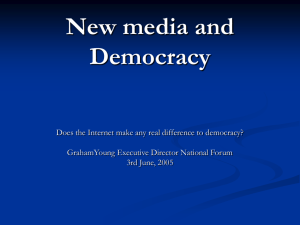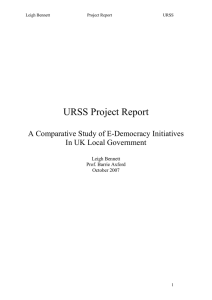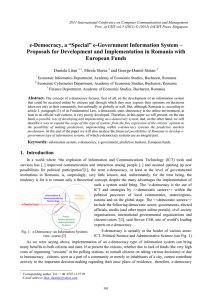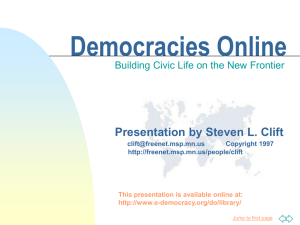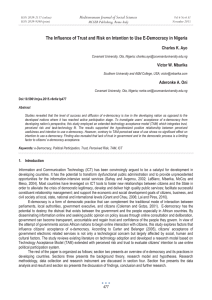e-democracy
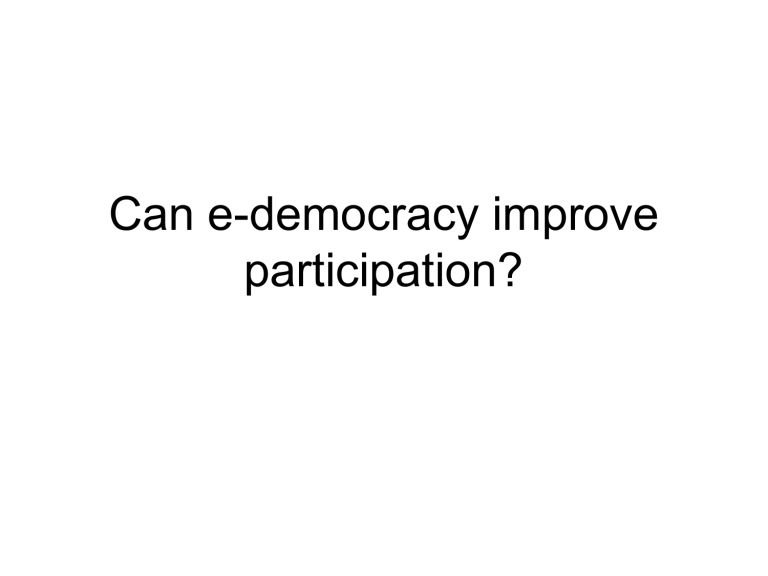
Can e-democracy improve participation?
What is E-democracy
• Synonyms- tele-democracy, direct democracy, digital democracy, egovernance, e-participation, deliberative democracy, cyber democracy…
• ICT based solutions that offer the public an opportunity to influence and participate in the policy process.
Why is it necessary?
• Political Participation declining
• Membership of political parties down
• Voter turnout low
• General distrust in politics
Examples of E-democracy
• Online Questionnaires
• Discussion Forums
• Webchats with elected representatives
• Email directories
• Online Voting (Estonia and Switzerland)
• Streaming footage of debates
• Political information
Why has e-democracy become popular?
• More people have Internet Access: 13.1 million had home access in May 2005
• Government increasingly obligated to show accountability
• Internet is becoming a media for protest
(e.g Make Poverty History and Fathers for
Justice)
• Novelty factor
Arguments for e-democracy
• Facilitate dialogue between public and government
• Empower populations and strengthen community engagement
• Reduce barriers to participation such as time, geographical location and allow for views to be expressed in a private nonconfrontational arena
Arguments for E-democracy cont.
• Appeal to “hard to reach” groups (e.g young people)
• Innovative solutions could encourage
“bottom up” participation.
• Knock on effect on “conventional” democratic process
Arguments against e-democracy
• Undermine legitimacy of institutions/
Institutional reform not keeping up
• Could be dominated by well-organised groups
• Danger of abuse/ Security Issues
• Limits of participation: how much participation do people want?
The Digital Divide
• Approximately 1/3 rd of the UK population have never used the Internet
• 74% of 18 to 24 year olds used the internet compared to only 15% of those over 65 (Curtice et al 2005).
• Wide differences in use between highest qualified and least qualified
• 85% of professional and managerial households have home computers with internet access in 2004 compared, at the other end of the social scale to 35% of those people who are unemployed or reliant on social benefits
(ODPM 2005).
Is E-democracy Effective?
• How are the results collected and analysed?
• If anonymous how can abuse be prevented?
• Do the results feed into the policy process?
• Limits of democracy and participation
• Whose problem is digital exclusion?
• Paradigm shift or simply another tool?
